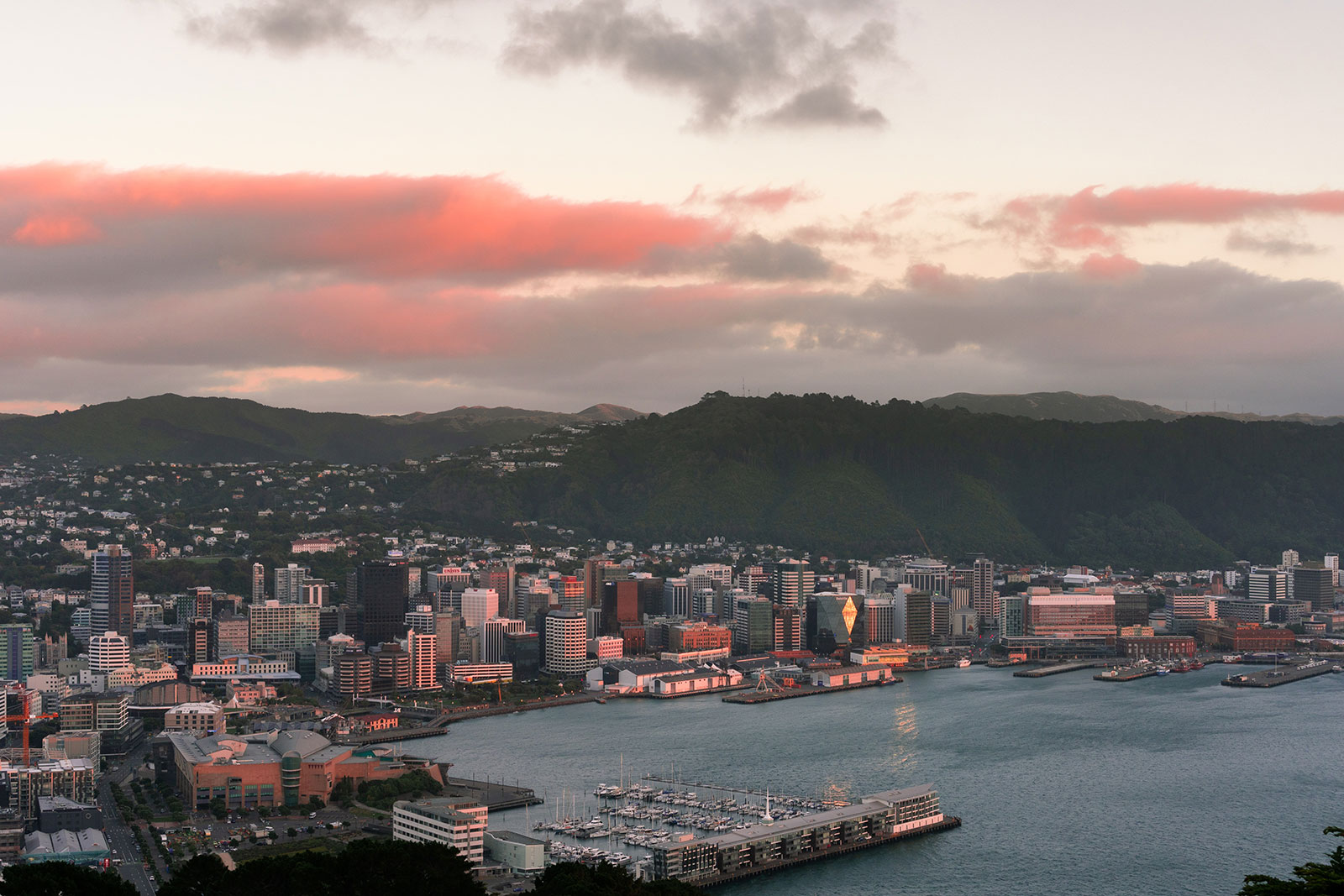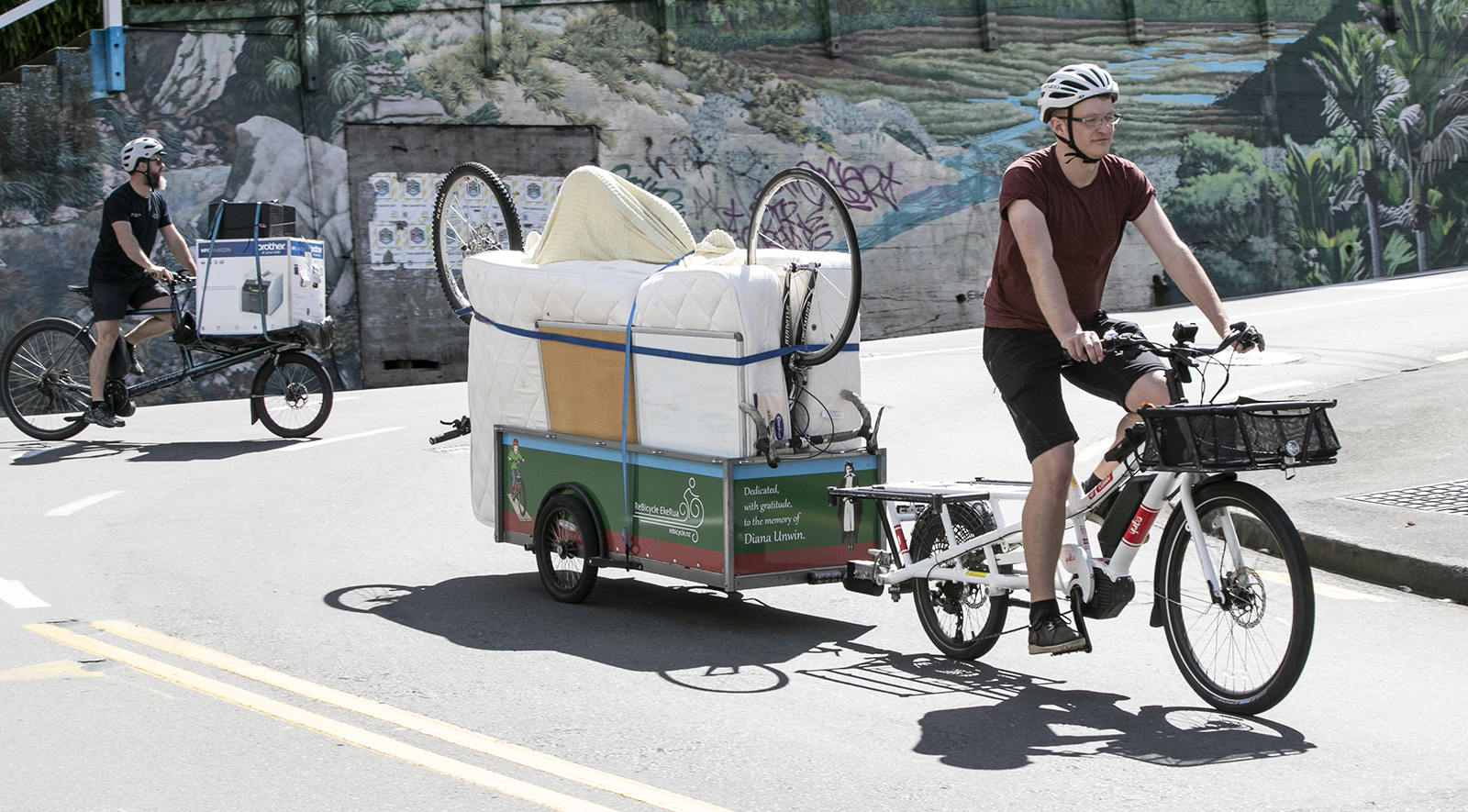Jonathan has never owned a car. In the past, he's had access to one while living overseas, but he's never had the desire to own his own. Growing up in Wellington, he always travelled by bike and he loves it.
Now, at the age of 29, Jonathan works as an independent contractor, travelling by bike to schools across Wellington. He also works part-time as a bus driver out in Rongotai — a commute he also does by bike to avoid getting stuck in traffic. On average, Jonathan says he rides between 10-20km a day, which is his daily exercise.
"I'm pretty lucky because I've biked in Wellington all my life. I can reach anywhere in the city within half an hour which is really convenient, and I love that I never get stuck in traffic and always have somewhere to park right outside my destination. I have a little trailer that I clip onto my bike when I need to pick up groceries or something else I can't fit in my backpack."
Cost is another factor that comes into play. Jonathan prefers to live on a smaller budget and finds owning a car expensive, with the costs of servicing, petrol, finding somewhere to keep it. It's money he could be spending on other things.
In wetter weather, he'll just throw on a raincoat and sometimes, waterproof trousers, and heads out. Despite what people might think about Wellington weather, it doesn't happen that often — he estimates about ten or twenty times a year.

Car-free for the climate
The main reason behind his bike-free lifestyle is climate change and the relationship between transport and carbon emissions.
"One of the biggest reasons for me is climate change," he says. "I try to do everything I can to reduce my own emissions, and not driving is one of the easiest for me to do."
"My personal exposure to the consequences of climate change is fairly limited. So when I'm reducing my emissions, I'm thinking really about people in third world countries who're going to be the most impacted by its effects, and what that means in terms of human suffering and global stability. The other thing for me is seeing the next generation coming up and saying, 'climate change is really going to affect our futures — do something about it'."
I try to do everything I can to reduce my own emissions, and not driving is one of the easiest for me to do.
Moving flats on two wheels
Some people grab groceries on the bike, or put the kids on the back — Jonathan has packed his entire life onto a bike. When he moved flats in Wellington recently, he and some friends shifted the entire contents of his flat by cargo bike. The hardest part was carrying everything down the stairs from his 4th floor apartment. The rest was easy sailing.
"Like all trips by bike, it was really good fun," he says. "Moving by yourself can be quite stressful so I called up my friends that have cargo bikes and also got some help from local businesses. It was a great community feeling. We took an extra long route along the waterfront on a beautiful sunny day, and stopped and got a pizza and beers at the end."

For the move, Jonathan had borrowed an electric bike with a huge trailer – about 1.6m long. In it, he fit a mattress, bed base, and also two of his bikes. Between himself and nine friends, they were able to move everything in a single day — clothes, furniture, boxes, chest of drawers, desk, and bed. The parade of bicycles didn't go unnoticed. "It got a lot of attention and we definitely had people staring and commenting as we rode past," he says.
City of cycles
Jonathan says that bikes and cargo bikes are becoming more and more common around Wellington, which is a great sight.
"We're seeing more and more of these cargo bikes around. Probably not people moving beds and all their belongings, but the bikes we used for the move are out there every day in Wellington, moving cargo and making deliveries."
It's a booming industry in the city, with bike shops like Bicycle Junction or Burkes Cycles; bike hire companies like Switched on Bikes; ReBicycle which upcycles second-hand bikes; Nocar Cargo, Wellington's bicycle courier company; and Locky Docks, secure free bike parking and charging docks.
Words of advice
Longer trips are a little more difficult to make low-carbon journeys. New Zealand's public transport network isn't great outside city centres, Jonathan says. But for those trips further afield, say out to Kapiti, he'll take the train as far as he can and then do the rest on bike. Mostly though, going car-free is pretty achievable.
"Most car trips in New Zealand are really short. Maybe for some trips, a bike might not be your best option. But for many trips, like going to the shops, commuting to work, or meeting friends at a café, travelling by bike is faster, easier, cheaper, healthier, more fun, and better for the climate than travelling by car.
"My advice would be to start small and think about one trip a week you could make by walking, cycling or public transport – and pretty soon you might find yourself moving house by bike."
Read next
-
Driving change: 7 ways New Zealand workplaces can support sustainable commuting
By offering facilities and a positive culture around sustainable travel, workplaces can make it easier for staff to leave their cars at home and enjoy cheaper, low-stress commutes.
-
Beat energy waste
These energy-saving habits can add up to some serious savings on your bills.
-
Your checklist for smarter appliance shopping
By making clever appliance purchases, you can lower your cost of living while reducing your household emissions.
